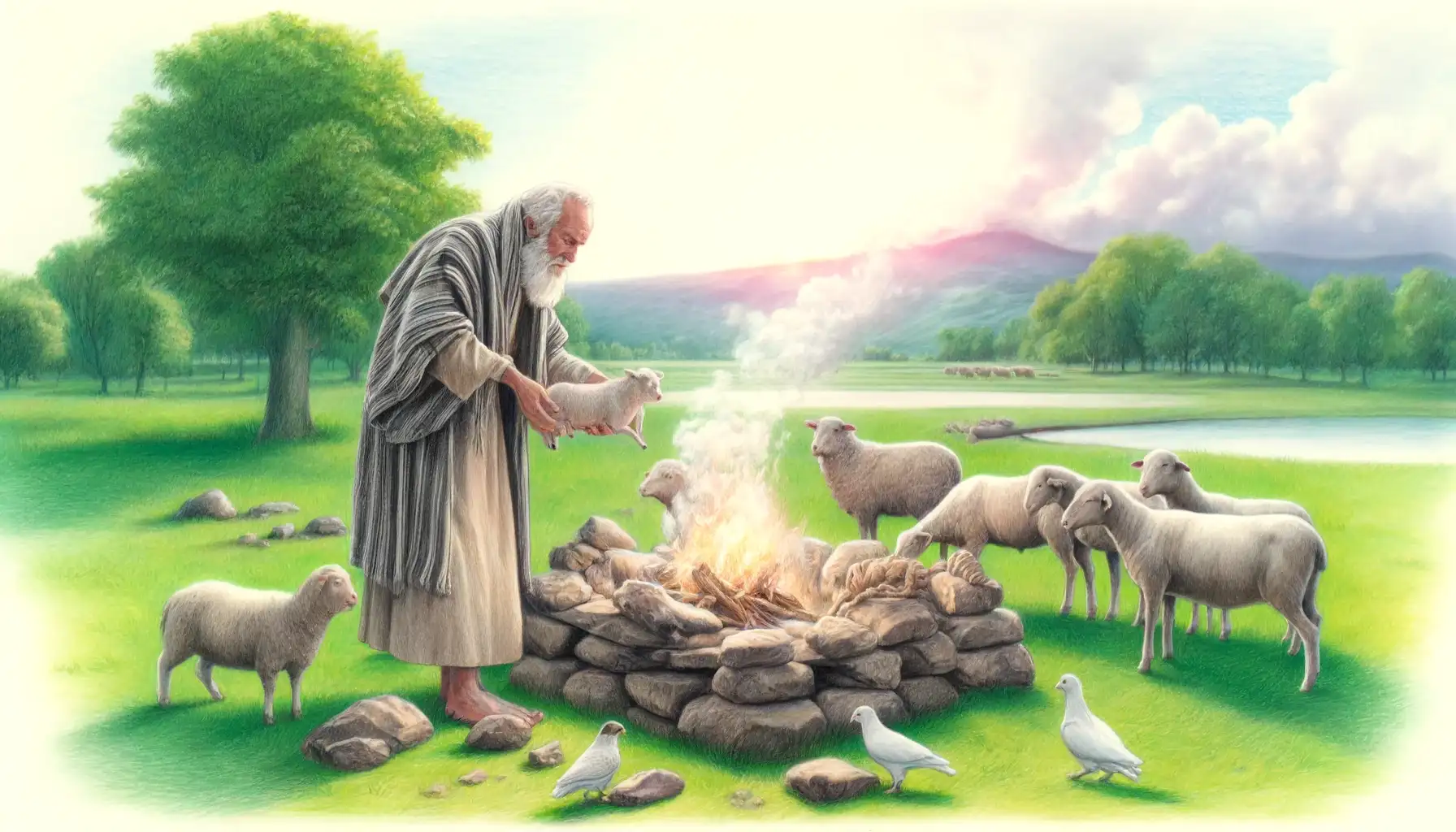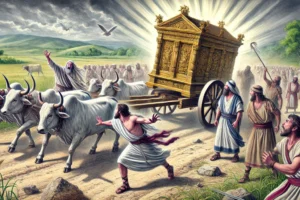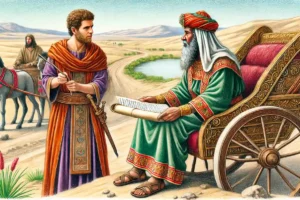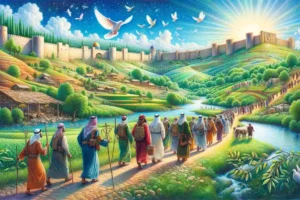
Noah’s Sacrifice: Genesis 8:20-21
The passage from Genesis 8:20-21 describes an important moment following the biblical Flood, where Noah offers a sacrifice to God. Here are some key facts about this event:
- Noah’s Altar Construction: Upon exiting the ark after the floodwaters receded, Noah built an altar to the Lord, which is the first altar mentioned in the Bible.
- Sacrificial Offerings: Noah took some of all the clean animals and clean birds and offered burnt offerings on the altar. In the context of Old Testament practices, “clean” animals were suitable for consumption and sacrifice.
- God’s Response: The Lord smelled the pleasing aroma of the sacrifice. This expression indicates God’s favorable acceptance of Noah’s offerings.
- Divine Promise: Moved by Noah’s actions, God made an internal promise that He would never again curse the ground because of humans, despite the inclination of the human heart being towards evil from youth. Additionally, God vowed never again to destroy every living creature as He had done with the Flood.
- Continuation of Seasons: Following this promise, God also assured the continuity of earth’s natural patterns and seasons, ensuring that day and night, seedtime and harvest, cold and heat, and summer and winter would not cease as long as the earth endures.
Genesis 8:20-21 provides a rich tableau for theological reflection and analysis. This narrative segment not only describes Noah’s actions following the Deluge but also encapsulates significant theological themes such as covenant, sacrifice, and divine-human relationships. Let’s delve into a comprehensive analysis of these verses.
1. Noah’s Sacrificial Act
Noah’s construction of an altar and his offering of sacrifices are among his first actions upon leaving the ark. This act symbolizes gratitude and reverence towards God. The sacrifice of clean animals, which were deemed appropriate for offerings and for consumption under Levitical laws established later, underscores the idea of purity and acceptability in worship. This scene sets a foundational precedent for the Israelite sacrificial system.
2. God’s Response
The response from God to Noah’s sacrifice is profoundly significant. The text mentions that God smelled the “pleasing aroma” of the sacrifice. This anthropomorphic expression conveys God’s acceptance and satisfaction with Noah’s act of worship and obedience. It’s important to note that the concept of a “pleasing aroma” is recurrent in Levitical sacrifice regulations, suggesting that proper worship genuinely affects the divine.
3. Theological Implications of the Divine Promise
God’s promise that He would never again curse the ground or destroy all living creatures as He had done (despite humanity’s continual sinful nature) introduces a pivotal shift in divine judgment. This promise suggests a move from a justice-based reaction to a grace-based forbearance. It reflects a deepening of the relationship between God and humanity, where mercy tempers justice.
4. Symbolism of the Sacrifice
The burnt offerings are not merely ritualistic; they carry deep symbolic meaning regarding atonement and consecration. In biblical theology, the concept of a burnt offering (Hebrew: עֹלָה, olah) involves the offering being completely consumed by fire, symbolizing total surrender and the ascent of the sacrificial smoke towards the divine.
5. Continuity and Providence
Following the sacrifice, God’s affirmation that the cycles of nature—day and night, seedtime and harvest, cold and heat—would never cease, emphasizes His providential care over creation. This assurance provides stability and hope, highlighting God’s commitment to sustain and nurture life despite human failings.
6. Covenantal Themes
This narrative foreshadows the later formal covenant between God and Noah in Genesis 9. It introduces the principle that God’s covenants are responses to human faithfulness and are marked by divine promises that guide future interactions with humanity.
Conclusion
Genesis 8:20-21 is a profound testament to the themes of redemption and covenant in the biblical narrative. Noah’s actions and God’s responses are emblematic of a relational dynamic that underscores much of the scriptural message. This passage invites believers to reflect on the nature of proper worship, the importance of divine grace, and the assurance of God’s ongoing providence. Such reflections encourage a deeper understanding of how ancient texts inform contemporary faith and spiritual practice.



